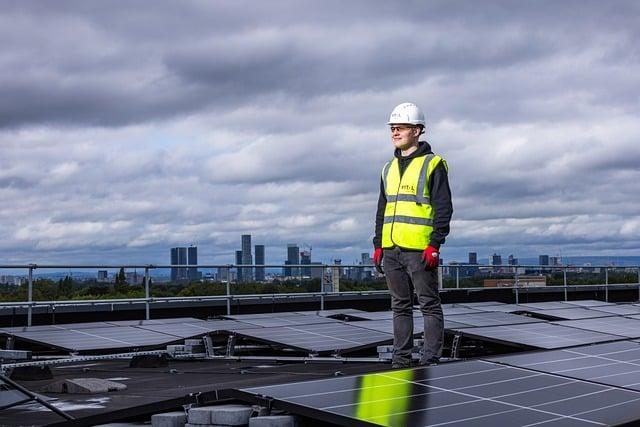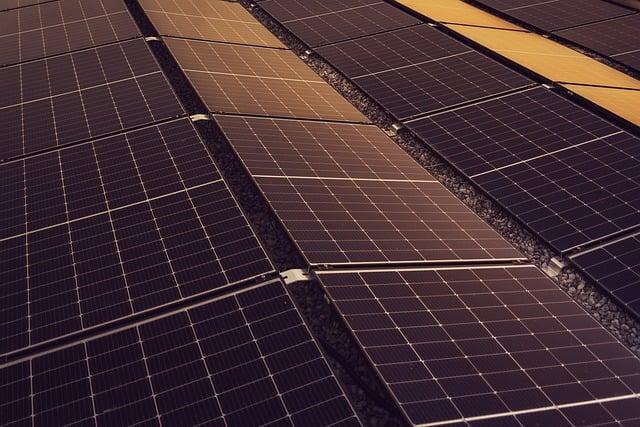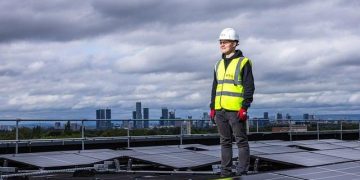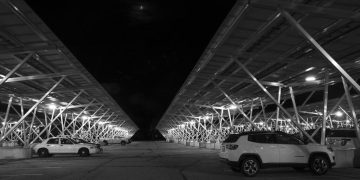In a world increasingly powered by the sun, the solar panels“>solar industry
Balancing Green Promises with Accountability
As the solar industry rapidly expands, the spotlight increasingly falls on its environmental impact, raising questions about the balance between renewable energy aspirations and ecological responsibility. While solar power undeniably offers a cleaner alternative to fossil fuels, the production and disposal of solar panels can pose significant environmental challenges. Addressing these concerns requires industry leaders to navigate a complex landscape of sustainable practices.
To ensure true sustainability, stakeholders might consider advocating for stricter environmental standards that emphasize responsible manufacturing and end-of-life management. This could involve:
- Enhanced recycling programs to manage waste and reclaim valuable materials.
- Improved transparency in the supply chain to minimize carbon footprints and reduce resource consumption.
- Commitments to ethical sourcing of raw materials, ensuring minimal ecological disruption and fair labor practices.
Such measures would not only uphold the integrity of the solar industry but also foster trust and accountability among consumers and investors alike, ultimately leading to a more sustainable future.

The Role of Transparency in Solar Industry Practices
In an industry where sustainability is the cornerstone, transparency plays a crucial role in ensuring ethical practices and fostering trust. Solar industry leaders must openly share information regarding their environmental impact, sourcing of materials, and energy efficiency metrics. This openness can be achieved through initiatives such as:
- Publishing detailed sustainability reports.
- Certifying supply chains to ensure ethical sourcing.
- Implementing robust monitoring systems to track and report environmental impacts.
A transparent approach not only holds companies accountable but also empowers consumers to make informed choices. By maintaining clear and honest communication, the solar industry can drive meaningful change and lead by example, setting a precedent for other sectors to follow.

Innovative Approaches to Sustainable Solar Manufacturing
The solar industry stands at the forefront of the green energy revolution, yet the path to achieving truly sustainable manufacturing processes remains a challenge. By embracing innovative approaches, solar manufacturers can drastically reduce their environmental impact. Among these strategies is the use of closed-loop systems that recycle materials within the manufacturing process, minimizing waste and conserving resources. Additionally, the adoption of eco-friendly materials such as organic photovoltaic compounds can significantly lower the carbon footprint associated with solar panel production.
Furthermore, some companies are exploring the potential of local manufacturing hubs that leverage advanced technologies like 3D printing to produce components closer to installation sites, thus reducing transportation emissions. The incorporation of renewable energy sources to power manufacturing facilities themselves is another forward-thinking approach. These innovative strategies not only contribute to a more sustainable industry but also enhance the credibility of solar energy as a genuinely green solution. By integrating these methods, the solar sector can set a benchmark for environmental responsibility and inspire broader change across various industries.

Implementing Rigorous Standards for a Greener Future
As the solar industry continues to expand, the imperative to balance growth with environmental responsibility becomes ever more pressing. Industry leaders face increasing scrutiny over the lifecycle impacts of solar technology, from manufacturing processes to disposal practices. While solar panels contribute significantly to reducing carbon footprints, their production and end-of-life management raise critical environmental concerns. Implementing more rigorous standards can ensure that the push for renewable energy does not come at the expense of environmental degradation.
Key areas for improvement include:
- Resource Efficiency: Encouraging the use of sustainable materials and minimizing waste in production.
- Recycling Programs: Establishing comprehensive systems for the collection and recycling of outdated panels.
- Energy Use: Reducing energy consumption during manufacturing by adopting more efficient technologies.
- Pollution Control: Ensuring that emissions from production facilities meet strict environmental guidelines.
By holding solar industry leaders to higher environmental standards, we can foster a truly sustainable future where renewable energy solutions contribute positively to the planet.
Final Thoughts
As we stand on the precipice of a new era in energy, the conversation surrounding the solar industry’s environmental responsibilities remains as vibrant and dynamic as the technology itself. The sun, a beacon of infinite potential, shines equally on all, urging us to consider the balance between innovation and accountability. Should solar industry leaders be held to stricter environmental standards? The answer lies not in a simple yes or no, but in a nuanced dialogue that respects the complexities of our global ecosystem. As we harness the power of the sun, let us also illuminate the path towards a sustainable future, where progress and preservation walk hand in hand. In this evolving narrative, the next chapter is yet unwritten, inviting us all to be thoughtful architects of a cleaner, greener tomorrow.


































